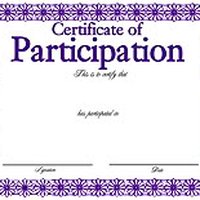Today’s Talk on Wellness for Lawyers
 We, as a profession, are not doing well. A very large percentage of us are suffering from significant mental health issues. We are one of the top five professions for rates of suicide. And many of us battle significant substance abuse issues. Today, Bob Rubin and I gave one of the most significnt CLE talks I have ever given. And our topic was what lawyers can do to better cope with stress. We were slated to talk about an entirely different talk and made a gametime decision to switch it up. Bob had a Powerpoint from a previous talk on this topic, and I had information because this topic has been of personal interest to me for quite some time. For those who attended today for for everyone else, I want to provide more information and some links.
We, as a profession, are not doing well. A very large percentage of us are suffering from significant mental health issues. We are one of the top five professions for rates of suicide. And many of us battle significant substance abuse issues. Today, Bob Rubin and I gave one of the most significnt CLE talks I have ever given. And our topic was what lawyers can do to better cope with stress. We were slated to talk about an entirely different talk and made a gametime decision to switch it up. Bob had a Powerpoint from a previous talk on this topic, and I had information because this topic has been of personal interest to me for quite some time. For those who attended today for for everyone else, I want to provide more information and some links.
- Running. Running has pretty much saved my life. About 3 years ago, I was about as unhealthy has I have ever been. My weight had peaked. My suit buttons had not seen their buttonholes in quite some time. I came home and zoned out. I was irritable and unhappy. On a friend’s recommendation, I downloaded a couch to 5k app for my phone. I did the program. And I ran a 5k. Then I ran another. And I did another. I’ve since run a full marathon and a few half marathons. I am currently getting ready to run another full marathon in Chattanooga in October I owe my health and sanity to running. For me, it has made all the differene.
- Meditation. Equally important to me has been meditaiton. A year ago, I put the Headspace app on my phone after hearing a TED talk for its creator. This app is absolutely the best. But, in the past few weeks, I’ve noticed a change in my meditation practice. I want more silence and less of a guiding voice. On a friend’s recommenation, I downloaded Enso, a meditation timer. When I spoke with Bob about meditation, he said he considered himself to be an unsuccessful meditator because he can never focuse on the breath and lots of thougths pop up. But I told him what I’ve heard in a few places. If a meditation session produces only a minute of focus, then it was a good session. Noticing all the thoughts is a big part of the value of the exercise. The value in the excercise may be simply noting all the thought in an observational way.
- Email Practices. I’ve blogged about this topic before. But email will kill you by a thousand cuts if you constantly check it. I don’t. I use two services for email. One is called SaneBox, which clears out a bunch of the clutter before I check it. The other is InBox Pause, which holds email out of my inbox until I schedule it to come in. Right now, email comes in at 4:00 p.m. on Monday through Friday. I process and take my email to zero for about 30 minutes to an hour. After clearing out the email, I return calls. If something important is going on, I will suspend that pratice from time to time (if I’m in a plea negotiation, for instance). This practice is entirely in keeping with a lawyer’s duty to communicate with a client. Our job is to provide the client with the necessary information to make informed decisions, to respond to reasonable requests for information, and to keep the client apprised regarding my strategy on the case. The Bar does not require me to be on 24/7 call, interrupt family time, or to answer messages instantly at all hours. And If I did that, I would not get much case work done. I highly recommend, by the way, Cal Newport’s Deep Work, on this topic.
- Journaling. This never came up, but I meant to cover it. I spend thirty minutes every day writing whatever comes to mind. Sometimes what I write generates a great idea. But more often than not, the activity clears the cruft out of my mind. The app I use is DayOne. All the posts live in the cloud and sync among my devices. But I’ve also done this activity on a yellow legal pad.
I’ll repeat here what I said today, No client, no judge, opposing counsel, or case is worth my health. And if you make being a great lawyer your second or third priority, you are more to be a great lawyer because you will have the health and heart to reach your professional goals.







